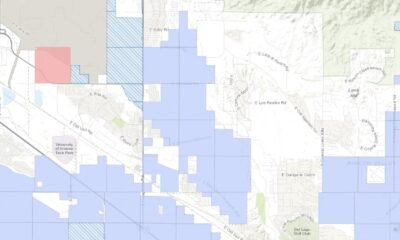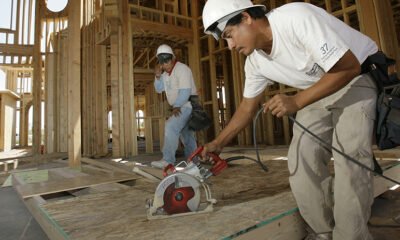crime
Pima County’s Housing Chief Calls for Urgent Addition of 1,200 Shelter Beds

Pima County is facing a pressing need for over 1,200 additional shelter beds to accommodate its homeless population, according to Jenifer Darland, director of the Office of Housing Opportunities and Homeless Solutions. In a memo directed to County Administrator Jan Lesher, Darland highlighted that more than 2,100 individuals are currently experiencing homelessness in the area, yet there are only about 800 available beds in existing shelters.
A January point-in-time count revealed that 2,102 individuals were homeless in the Tucson region. Among this number, 821 were found in emergency shelters, leaving 1,281 individuals without any form of shelter, residing in parks and encampments. While this figure represents a 15 percent decrease from the previous year, it reflects a significant 53 percent increase since 2019.
On the night of the count, 676 of the 811 shelter beds were occupied, indicating a severe shortage. Even if every available bed were occupied, there would still be 1,146 unsheltered individuals. Darland described the point-in-time count as a limited census exercise, acknowledging its inability to fully encapsulate the complex service needs of those experiencing homelessness.
The memo was prompted by a request from Supervisor Rex Scott during a recent county board meeting, as stated by Lesher. According to Ward 3 Tucson City Councilmember Kevin Dahl, various factors contribute to individuals declining shelter options. High-barrier shelters may require individuals to leave behind partners or pets or abstain from substances, making it difficult for some to accept shelter beds.
Approximately 63.6 percent of Pima County’s shelters are classified as low-barrier, imposing few restrictions on entry and not requiring sobriety or income verification. During a city sweep of encampments in Santa Rita Park last September, over 50 individuals were offered housing support, but none opted for shelter, as noted by Multi-Agency Resource Coordinator Mari Vasquez.
In her memo, Darland proposed a redesign of the shelter programs to enhance acceptance rates. She emphasized the importance of accommodating families and pets, while also ensuring privacy and addressing various service needs, including medical and behavioral health support. Efforts in the past two years have included Tucson’s purchase of several motels—such as the Wildcat Inn and No-Tel Motel—to convert them into low-barrier shelters and affordable housing. Additionally, the county acquired the Knights Inn last year to transform it into a shelter for evicted families.










![Maricopa Planning and Zoning Commission Chair James Singleton sits at the dais with Commissioners Ted Yocum and Robert Klob during a meeting June 9, 2025. [Monica D. Spencer]](https://arizonanews.org/wp-content/uploads/2025/06/Zoning-Board-Divides-Opinion-and-Delays-Decisions-on-Eastside-Housing-400x240.jpg)
![Maricopa Planning and Zoning Commission Chair James Singleton sits at the dais with Commissioners Ted Yocum and Robert Klob during a meeting June 9, 2025. [Monica D. Spencer]](https://arizonanews.org/wp-content/uploads/2025/06/Zoning-Board-Divides-Opinion-and-Delays-Decisions-on-Eastside-Housing-80x80.jpg)






